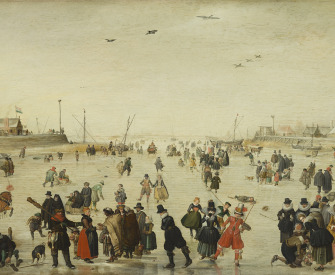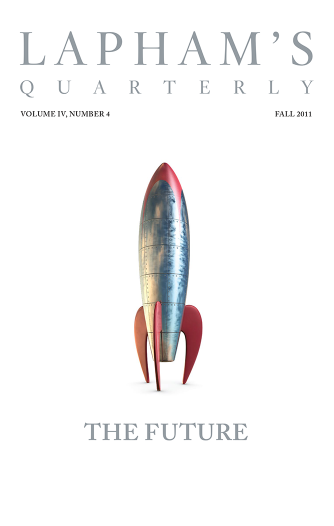Yes to a market economy, no to a market society.
—Lionel Jospin, 1998Market Watch
Meeting a queen.
Under ordinary circumstances, markets in the Asaba district are held every four or eight days, usually from the late forenoon till about three.
The market customs in Asaba are remarkable in that each market, which is, of course, mainly attended by women, has an omu, or market queen, to preside over it. She deals with offenses in the market such as theft or assault, sometimes with the help of the dignitaries of the town. She fixes prices and fines anyone who is guilty of breaking this law or of any of the things forbidden in the market. She takes dues of palm oil, and on certain occasions, when a sacrifice or other ceremony is required in connection with the market medicine, she may go out with her women to stop those coming to market and demand a percentage of their wares; payment is, however, usually entirely voluntary.
In some places the market cannot begin until the omu arrives. At Asaba the omu had to put her own calabash down and take her seat before other women could take their loads off their heads. At the present day, owing perhaps to the fact that the government market is not visited by many women because the site is unpleasing to them, the omu does not fulfill her duties. In former days the omu was entitled to take from each vessel of oil in the market about as much as would go into a teacup. When a ceremony was to be performed in the town, she could stop people coming to the market, and each person gave her a yam, a plantain, palm nuts, etc., to the value of about one penny, which the omu shared with her otu [company]. The otu had to keep watch in the market and see that none of the prohibitions were violated. If a cock crowed in the market, it went to the omu, though it could be ransomed at the price of one shilling.
At Okpanam the omu sent her stool to the market as a signal to begin. She was not, however, compelled to remain as long as the market was open. To summon the ikei ani [town elders] during the market for a big palaver, she sounded an agogo, or bell; she levied dues on the market women and made the market medicine; those women who refused to pay could be turned back. A rope was tied across the road, and the omu sat down; each woman put her load down in order that selection might be made. Among the prohibitions in force in the market were the following:
No cock was to crow.
No one was to fight in the market; if a machete or knife was used, the culprit might be fined one goat.
No woman was to come in with cords tied over her calabash.
If anyone sat down before the omu, she could seize the whole calabash of the woman, but an Okpanam woman or one related to the town would be warned only. Where a fine was not paid, the omu could seize the whole calabash.
At Issele Asaba money or contributions in kind were taken perhaps six times a year for the market medicine. Prices were settled by the omu, and anyone charging more would be fined. The omu gathered in a calabash all articles sold in the market as soon as she was appointed and went with her otu to the market. The prices at which she sold the various articles then were those established by law.
At Onitsha Olona the omu fixed the prices and could confiscate the wares of anyone who attempted to sell at too high a price. She could make laws against sending yams to strange markets but was not allowed to seize them, though she might stop the offender from going. If a woman ran from her husband to another town directly from the market, the matter was one for the omu to deal with.
At Ibuzo it is noteworthy that if the young men cleaned the road of the market women, each woman was compelled to give a leaf of tobacco.
At Ogwashi the omu could fine for nonattendance at the market. The price of goods was fixed by sounding a bell in the streets and making an announcement. She could forbid women to go to distant towns to market. No penalty was payable unless the offender was caught in the act.
At Oboluku the women who went to market on the Ogwashi road had seven young men with them as guards. They hid in the bush till the end of the market, and when the market was over, five more men came out, and the women returned between these two bodies of men.
At Ukunzu the market was formerly on the Obompa boundary, but a man was killed in a fight. Obompa handed over a woman to settle the matter; after this a gun full of medicine was fired to draw the people from the old market to the market now held in the town.
Northcote W. Thomas
From Anthropological Report on the Ibo-Speaking Peoples of Nigeria. The first anthropologist working for the British government to conduct fieldwork in West Africa, Thomas amassed a large collection of artifacts for which, according to his reports, he often traded or bartered. In another section of this report, he recounts having a table fixed by a local man who refused payment. “You are my friend,” the man said. “You have eaten kola [nuts] with me. I can’t take money from you.”


